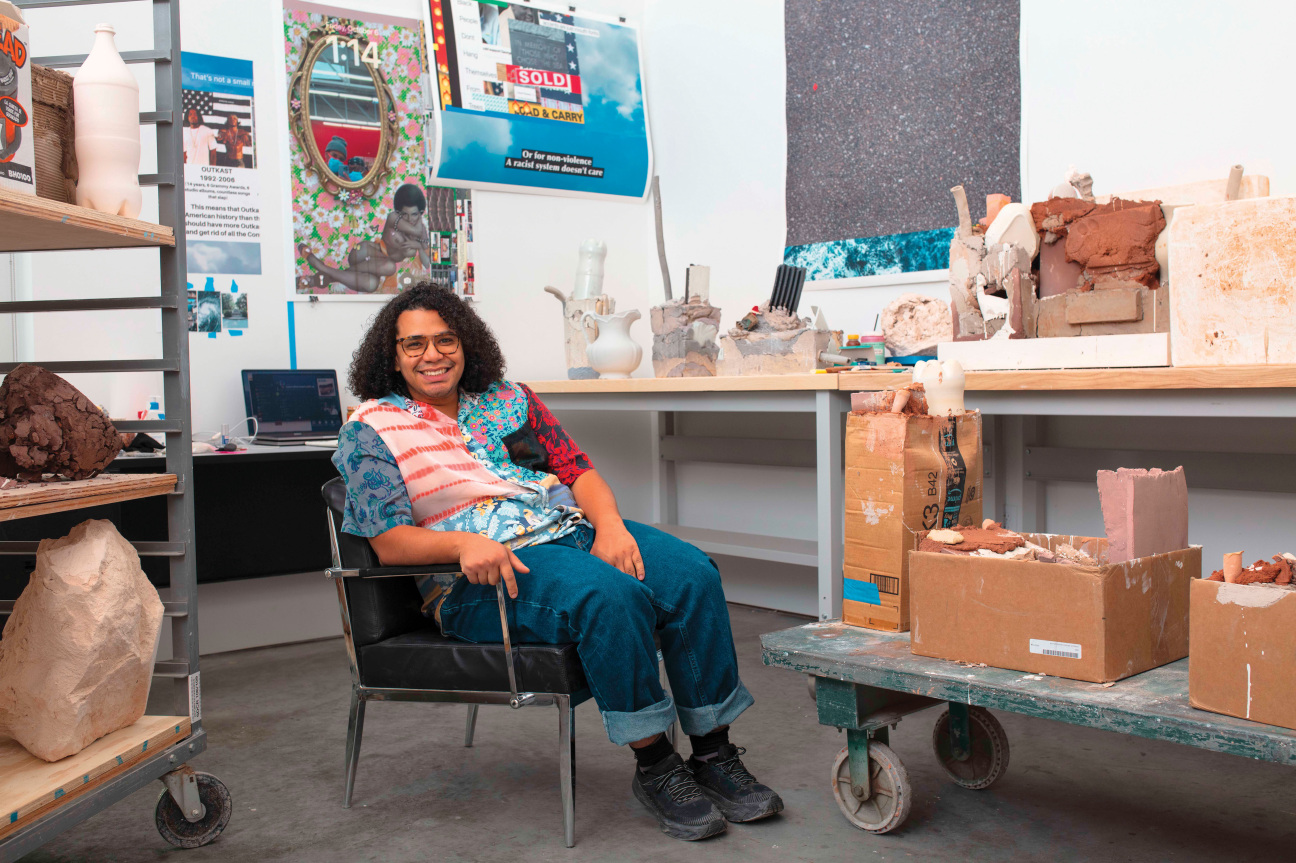
Kahlil Robert Irving is not interested in being seen, nor is he interested in being part of a scene. “I’ve been making things out of clay since I was 12 years old,” he announced in a 2022 interview with Mass MoCA. “I don’t have anything to prove to anybody.”
In the 19 years since Irving embarked on his relationship with ceramics, the sculptor has shared the company of eminent artists, showing at institutions as mammoth as the Whitney, MoMA, and the New Museum. His sensory practice synthesizes his experience of the world as a Black man—what it feels like to be continuously inundated with images and videos of police killings of other Black men, for instance—with the study of perception, playing primarily with the literal and metaphorical aspects of sight.
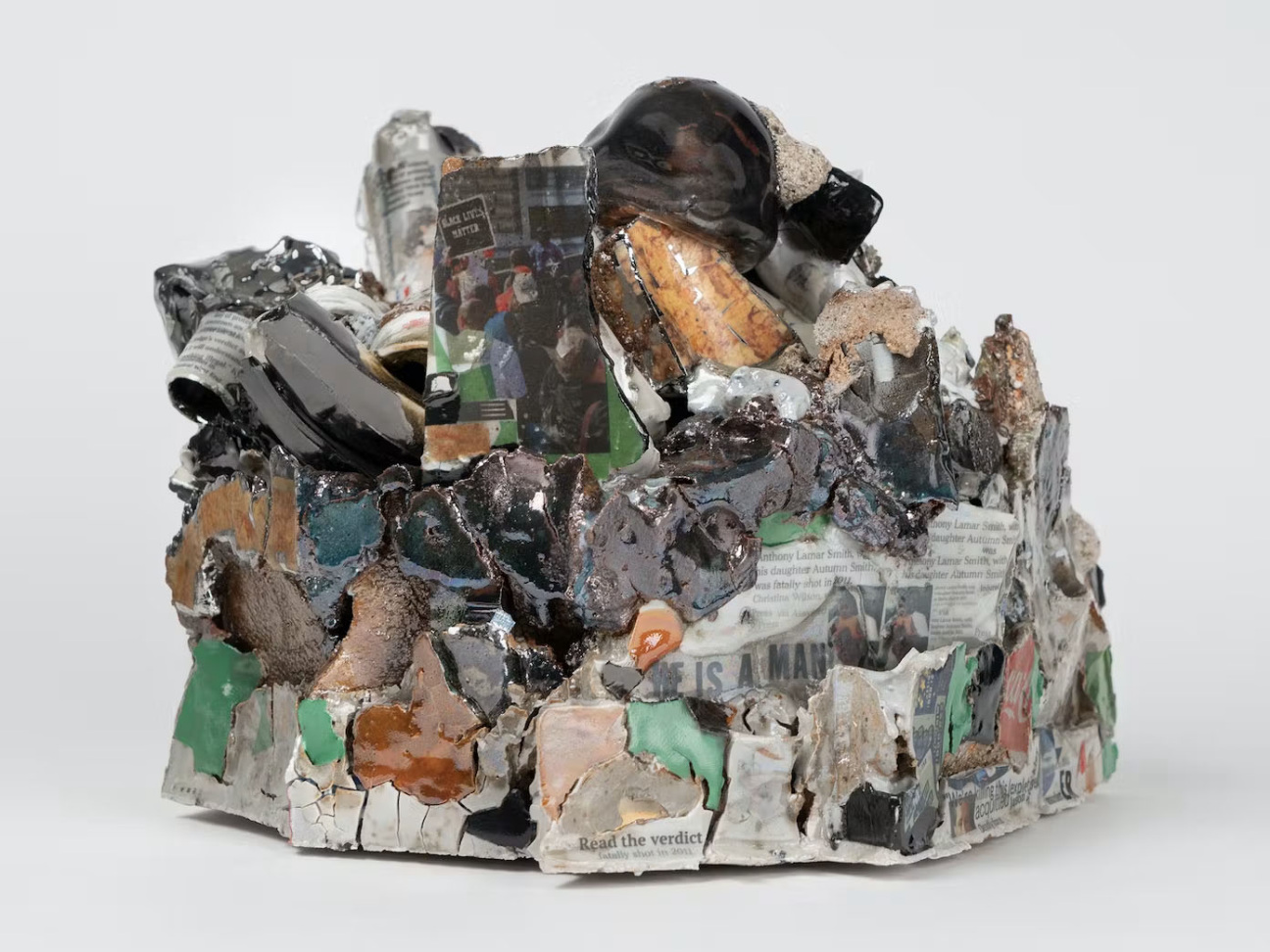
Irving’s latest exhibition closed at Minneapolis’s Walker Art Center last Sunday. An excavation of recent history, “Archaeology of the Present” featured a collection of sculptures that embody the layering technique for which the artist is best known.
These amalgamated masses consist of amorphous debris and easily recognizable pedestrian objects like vases, teapots, and soda bottles positioned at different angles, their volume covered in part by facsimiles of news clippings, social media posts, or commercial decals.
The works are often mistaken for found objects; Irving encourages those who detect the discrepancy to continue deconstructing what they know about the “fossilized” slice of time that is represented by the full sculpture. “If someone is able to decipher the code,” he explains, “then they have access.”
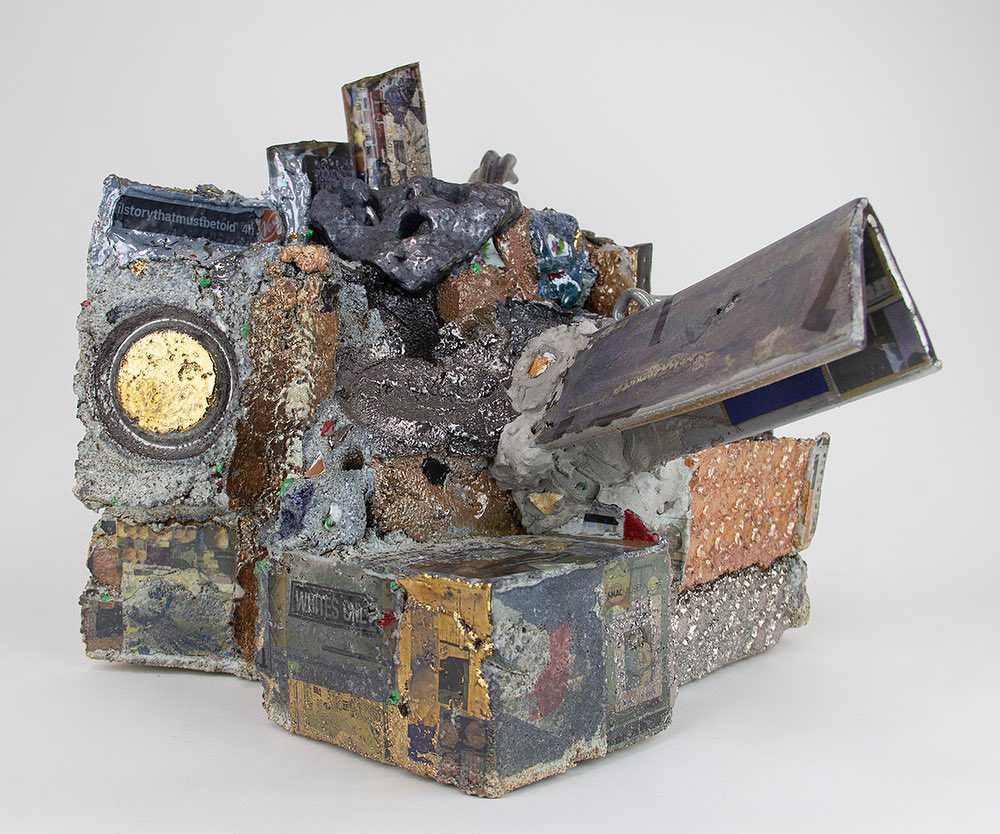
From his studio in Fayetteville, Arkansas—where he is currently a guest artist at the University of Arkansas and working toward a showing of “Archaeology of the Present'' at Saint Louis’s Kemper Art Museum—Irving weighs his words on questions of accessibility and marginalization in his work and the greater art world.
Last year, he experienced racist mistreatment while staying in a hotel. Around the time of the incident, he had also been tasked with taking care of his grandmother who later passed away. Making work—choosing creation over internal decimation, self-determination over powerlessness—simultaneously heals and fuels him.
“I’m constantly reminded that this is a marathon,” he concludes. “But I also remember that the world is on fire, and I just gotta do what I can do while I can.”
For more about CULTURED's 2023 Young Artists, read our features with Adraint Khadafhi Bereal, Giangiacomo Rossetti, and Oscar yi Hou.



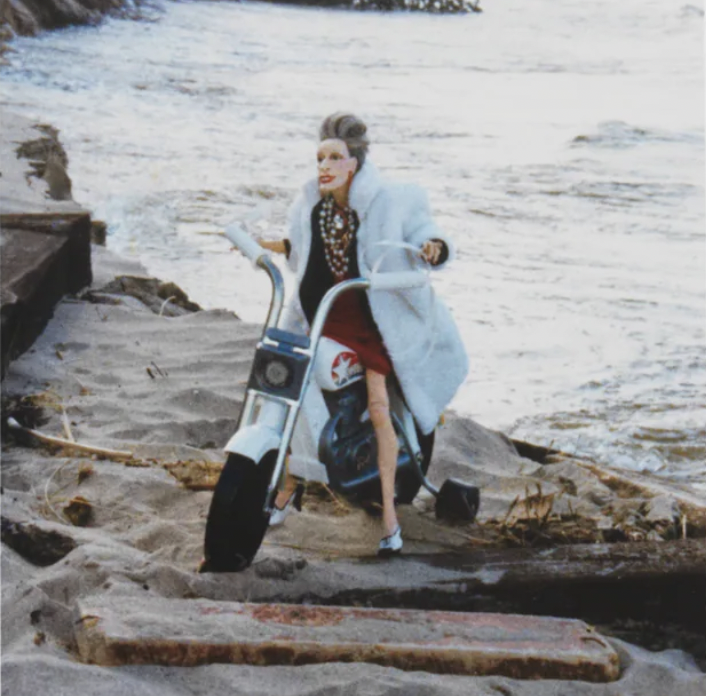


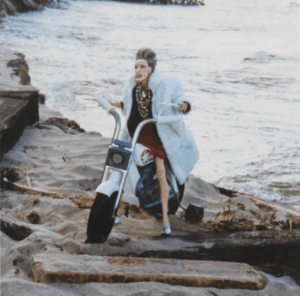



 in your life?
in your life?

